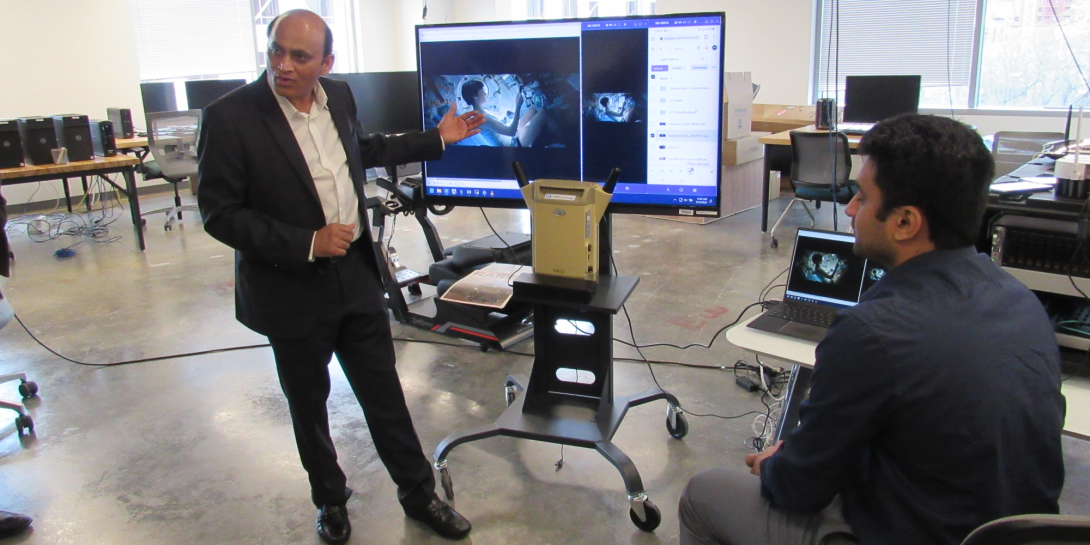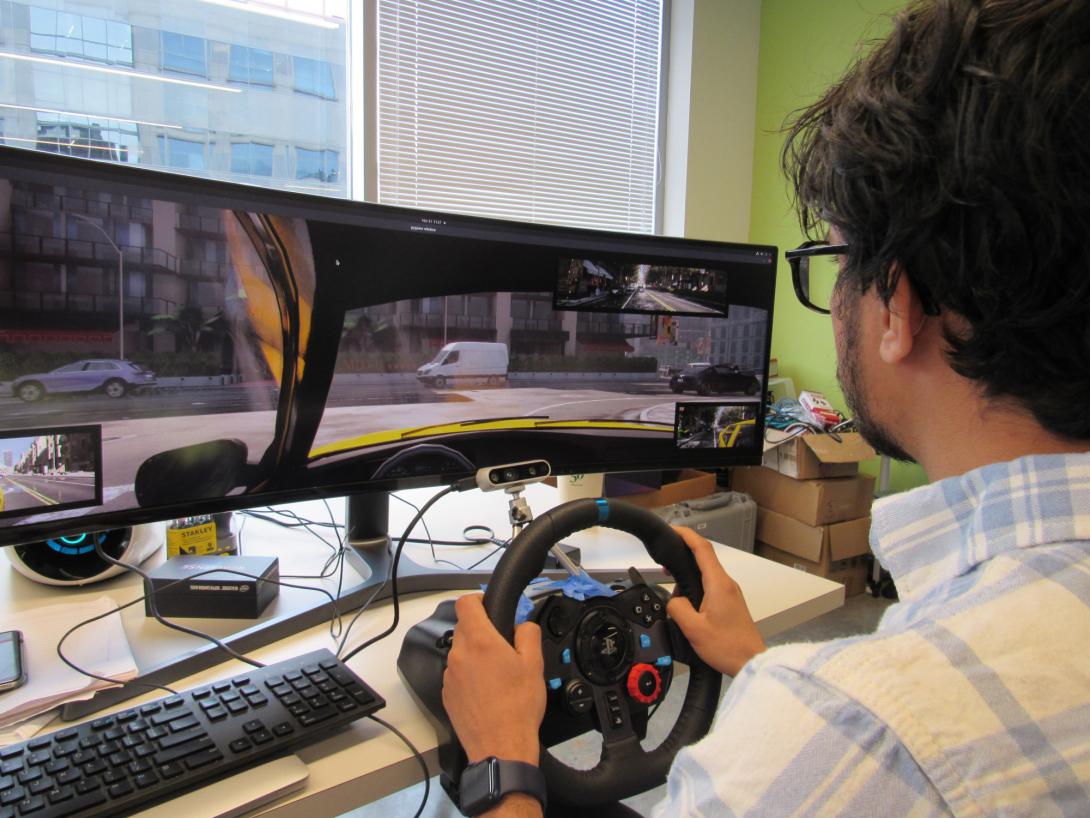Driving the Future of 5G Development and Innovation
A future of warfighters having instantaneous access to actionable intelligence on the battlefield, traffic jam-free highways thanks to connected driverless vehicles and energy-efficient buildings that prepare for employees’ arrivals well before they even hit the parking lot each share a common need—secure and readily accessible 5G technology and the applications that make synchronization possible.
Development of those initiatives and so many more are the focus of the faculty, students and partners at George Mason University’s Department of Computer Science, the largest and fastest growing computer science department in Virginia. They work to pursue transformative and multidisciplinary research vital to meeting national security needs, said Kenneth Ball, dean of the College of Engineering and Computing.
“Our students and faculty are on the leading edge of driving innovation that will make a notable difference in several critical disciplines for the future,” Ball said, citing areas such as cybersecurity, artificial intelligence and the development of technology to leverage fifth-generation, or 5G, wireless communications systems.
George Mason University’s work in 5G and cybersecurity seeks to improve overall quality of life, said Duminda Wijesekera, acting chairman of the Department of Cyber Security Engineering and a professor in the Department of Computer Science. Wijesekera serves as the co-director of the Center for Assurance Research & Engineering and leads the university’s Radio and RADAR Engineering (RARE) Laboratory. His research area includes safety and security of networked control systems in general and intelligent transportation systems, autonomous vehicles and smart buildings and cities.
The department offers coursework and research in many disciplines, including artificial intelligence, bioinformatics, data mining and machine learning, robotics and computer vision and more.
Already, wireless technology touches every facet of our day-to-day lives, Wijesekera said, and the department’s initiatives seek to optimize security and synchronization so all networking segments operate seamlessly and as intended.
George Mason leads the Northern Virginia Node of the Commonwealth Cyber Initiative (CCI). Four regional nodes comprise the CCI, a statewide ecosystem of innovation in cybersecurity and cyber-physical systems security. Partnerships include small businesses, nonprofits, schools, economic development organizations and corporations—for the Northern Virginia Node, that includes Widelity Inc. and COMSovereign Holding Corp.
To the GMU team's research, COMSovereign provides a portable, compact, easily deployable standalone communications systems that could keep an entire city’s secure communication needs up and running—especially during national emergencies, said Mohan Tammisetti, senior vice president and COMSovereign’s chief engineer, demonstrating recently a prototype at the CCI Living Innovation Lab at George Mason’s Arlington, Virginia, campus. The standalone 5G wireless network hardware, available as a backpack or housed within a durable Pelican case weighing about 120 pounds, features a turnkey 3GPP standardized, 5G Core (5GCN) and 5G gNodeB base station, Tammisetti said.
Imperative to the lab's research that is unlocking access to higher amount of data at higher speeds and allowing new data-heavy tools such as virtual and augmented reality is the vital focus and inclusion of cybersecurity, said Dustin McIntire, COMSovereign’s chief technology officer. The excitement of unleashing unprecedented, enhanced productivity must be tempered with a built-in security focus—a focus not lost on the partners, he said. “5G opens Pandora’s box in that it provides ubiquitous connectivity to so many devices. Security is a fundamental necessity that is front and center for our work,” McIntire said. The collaborative research will advance 5G technology and greatly expand the potential use cases for government and commercial customers.
Widelity contributes business and engineering services in technology strategy, research and development, network design, lab testing and integration and network deployment.
In another effort afoot from the university, George Mason is collaborating with seven industry and academia partners to compete for a National Science Foundation's 5G, security-focused program, conducted in collaboration with the Defense Department. The two-phase program—$750,000 for the first and current phase, followed by a $5 million phase—aims to provide military, government and critical infrastructure operators with the ability to securely operate through 5G wireless communications infrastructures, Capt. Bill Roeting, USN (Ret.,) professor and director of the National Security Programs in George Mason's College of Engineering and Computing.
Advances in 5G and future high-speed wireless communications, referred to as next-generation or NextG, promise orders of magnitude improvements in areas such as speed, connectivity and reduced latency—improvements that can transform how the military, governments and critical infrastructure operate, Roeting said. The work from the College of Engineering and Computing, to include research in artificial intelligence and machine learning, can enable new generations of connected systems across multiple domains.
Such as the work by PhD students Vikram Adhikari, a third-year student researching how a multitude of sensors and cameras embedded in vehicles can predict—and more importantly curtail—distracted driving; a necessary precursor to the eventual goal of completely autonomous vehicles—research being done by Adhikari’s classmate Mahbubul Alam Palash, a PhD student studying autonomous vehicle and traffic simulation.






Comments